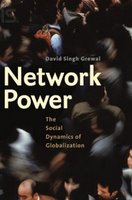My colleague Robert McCrum is standing down after ten years as the Observer’s Literary Editor. He’s written a thoughtful valedictory piece.
When I joined The Observer in 1996, the world of books was in limbo between hot metal and cool word processing, but it would have been recognisable to many of our past contributors, from George Orwell and Cyril Connolly, to Anthony Burgess and Clive James. Everything smelled of the lamp. It was a world of ink and paper; of cigarettes, coffee and strong drink. Our distinguished critic George Steiner used to submit his copy in annotated typescript.
The business end of books – WH Smith, Dillons and Waterstone’s – was run by anonymous men in suits whose judgments were largely ignored. Trade was trade. Literature was another calling. The atmosphere was dingy, time-hallowed and faintly collegiate. Every October, we all got together in the Guildhall and gave a cheque to the novelist of the year. In 1996, the winner of the Booker Prize was Last Orders by Graham Swift.
Now that world is more or less extinct. Many of the great names from those times (Hughes, Murdoch, Mailer, Heller, Gunn, Miller, Vonnegut) are gone. Books, meanwhile, have been pushed to the edge of the radar. A series of small but significant insurrections has placed the language and habits of the market at the heart of every literary transaction. The world of books and writing has been turned inside out by the biggest revolution since William Caxton set up his printing shop in the precincts of Westminster Abbey.
Heaven or hell? It’s too soon to say…
In the piece, Robert takes a sideswipe at a number of names US literary blogs — to which he attributes growing influence. One of them — Syntax of Things — isn’t overly impressed by his analytical skills.
As always, litblogs don’t necessarily come across as a good thing. In fact, they (we) are blamed for the fall of the great newspaper book review dynasty. Hell, if I knew I had that much power, I’d start a wiffle ball team and take down the New York Yankees franchise forever. Or I’d karaoke so well that I’d be able to rid the world of Madonna once and for all.
One passage from the Observer piece seems to have hit a nerve. It says:
Readers had been posting reviews on Amazon for year. Now these book blogs – in Britain, for example, a highly responsible site like Vulpes Libris – could take over and hand the power back to – time honoured term – the Common Reader. My view is that the Common Reader generates more heat than light. On closer scrutiny, we find that this creature, as fabled as the hippogriff, is just as uncertain as everyone else. The equation of Amazon plus Microsoft has left the Common Reader dazed and confused. How else to explain the extraordinary success in 2003 of Eats, Shoots & Leaves…?
Sigh. This is old-world elitist newspaper writing. It assumes that one’s readers will accept an Olympian stance simply because one has a job on a posh newspaper. It won’t wash any more. As Syntax of Things observes, with irony dripping from every word:
No qualification of highly responsible. Did I miss the seminar or not read the pamphlet that listed the qualifications of responsible book reviewing? Damn, I’ll have to Google around for it. Then again, it could be that it’s written in invisible ink on the back of the hand that feeds everyone this crap and calls it a gourmet meal. Highly responsible for what?
Here at Syntax of Things, we are highly responsible and possibly, in the eyes of outgoing literary editors for major newspapers, highly contemptible for reading books published by a former quality-control manager for a car-parts manufacturer. AND ENJOYING THEM, TELLING YOU ABOUT THEM, AND BRINGING RUIN TO THE SACRED EMPIRES.
God, I love having this power.



